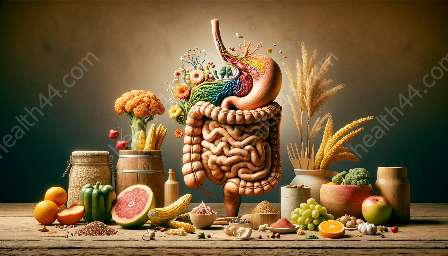Eating disorders are complex mental health conditions that can have a profound impact on nutrition and overall health. They are characterized by abnormal eating habits, which may involve either insufficient or excessive food intake, leading to detrimental effects on an individual's physical and emotional well-being. Understanding the different types of eating disorders and their implications for nutrition and health is crucial for promoting awareness and facilitating effective intervention and support for those affected.
Types of Eating Disorders
There are several recognized types of eating disorders, each with its own distinct characteristics and challenges.
- Anorexia Nervosa: Anorexia nervosa is characterized by a relentless pursuit of thinness and a distorted body image, leading to self-imposed starvation and severe weight loss. People with anorexia often have an intense fear of gaining weight or becoming fat, despite being significantly underweight.
- Bulimia Nervosa: Bulimia nervosa is characterized by recurrent episodes of binge eating, followed by compensatory behaviors such as self-induced vomiting, misuse of laxatives or diuretics, fasting, or excessive exercise. Individuals with bulimia often experience feelings of shame and guilt related to their eating behaviors.
- Binge Eating Disorder (BED): Binge eating disorder involves the consumption of large amounts of food in a discrete period, accompanied by a sense of loss of control. Unlike bulimia, individuals with BED do not engage in regular compensatory behaviors, leading to significant weight gain and related health issues.
- Other Specified Feeding or Eating Disorder (OSFED): OSFED encompasses a range of disordered eating patterns that do not fully meet the criteria for the aforementioned eating disorders but still significantly impact an individual's health and well-being. This category includes atypical anorexia nervosa, bulimia nervosa of low frequency and/or limited duration, and night eating syndrome, among others.
Relationship with Nutrition and Health
Eating disorders can have far-reaching effects on an individual's nutrition and health, impacting various aspects of physical and psychological well-being.
Nutritional Implications
Individuals with anorexia nervosa often restrict their food intake to dangerously low levels, leading to malnutrition and deficiencies in essential nutrients such as vitamins, minerals, and proteins. This can result in a range of health complications, including osteoporosis, anemia, heart problems, and impaired cognitive function.
Bulimia nervosa and binge eating disorder can also have significant nutritional implications. Binge eating episodes, often involving the consumption of high-calorie, low-nutrient foods, can lead to weight gain and related health issues such as obesity, diabetes, and cardiovascular problems. The frequent purging behaviors associated with bulimia can disrupt the body's electrolyte balance and lead to issues like dehydration, gastrointestinal problems, and dental erosion.
Psychological and Emotional Impact
Eating disorders can take a toll on an individual's mental health, contributing to anxiety, depression, and low self-esteem. The preoccupation with food, body image, and weight can lead to social isolation, relationship difficulties, and a diminished quality of life. Additionally, the shame and secrecy often associated with these disorders can further exacerbate the psychological burden on affected individuals.
Treatment and Support
Effective treatment for eating disorders requires a multidisciplinary approach that addresses both the physical and psychological aspects of the condition. Nutrition professionals play a vital role in the treatment and recovery process, working alongside mental health professionals to provide comprehensive care.
Nutritional Counseling and Rehabilitation
Registered dietitians and nutritionists specializing in eating disorders can help individuals develop healthier relationships with food, establish balanced eating patterns, and address nutritional deficiencies. They may provide meal planning guidance, education on portion control, and support for restoring a healthy weight in a gradual and sustainable manner.
Therapeutic Interventions
Therapeutic interventions for eating disorders often include cognitive-behavioral therapy (CBT), dialectical behavior therapy (DBT), and family-based treatments. These approaches aim to address distorted thoughts and behaviors related to food and body image, enhance emotional regulation skills, and improve interpersonal functioning.
Community and Peer Support
Peer support groups and community-based programs can offer valuable support for individuals and their families, fostering a sense of understanding, connection, and encouragement throughout the recovery journey. These networks provide opportunities for sharing experiences, coping strategies, and practical guidance for navigating daily challenges associated with eating disorders.
Conclusion
Eating disorders pose significant challenges to individuals' nutrition and health, requiring comprehensive and compassionate interventions to support recovery and well-being. By raising awareness, promoting education, and fostering a collaborative approach among nutrition professionals, healthcare providers, and support networks, it is possible to enhance the understanding of eating disorders and contribute to improved outcomes for those affected.




























